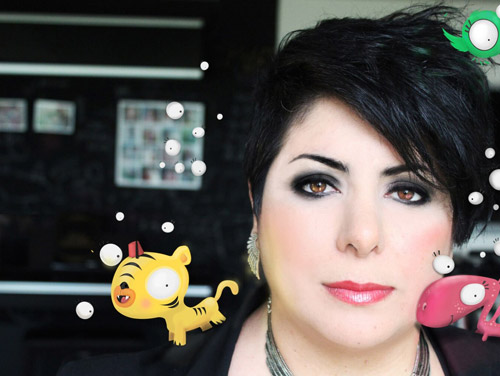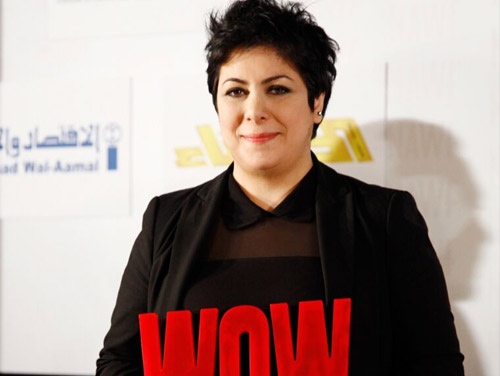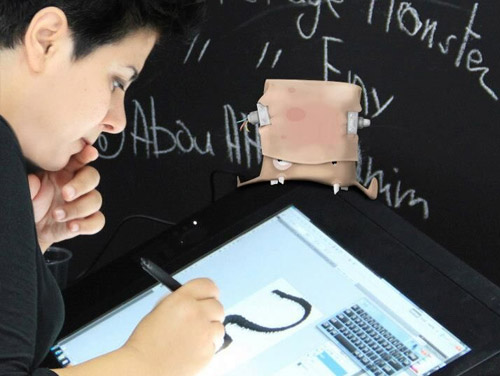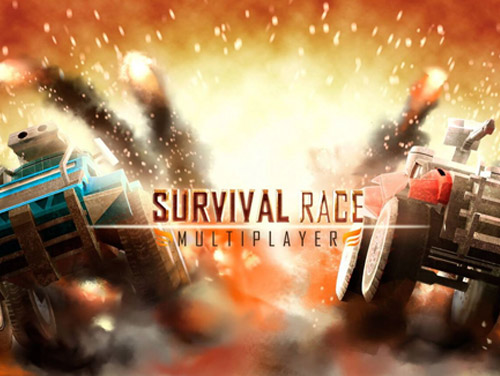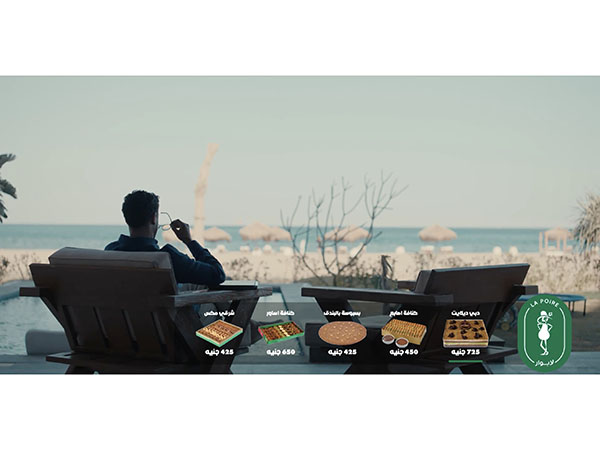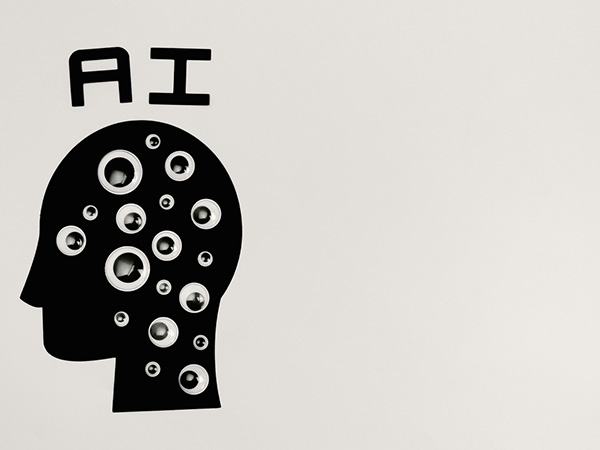News - Digital/Tech
The Element of Initiative
by Omar Daou
July 1, 2015

Tell us a little bit about Wixel Studios. How was the idea conceived?
Wixel Studios is a gaming company we founded in 2008. And it’s still surviving till now! [laughs] I personally love the name Wixel Studios very much – Wixel stands for “Weird Pixel.” We were considered very weird for everyone back then – opening our own gaming company in a region with no gaming industry. Wixel Studios specialises in creating games and the people of Wixel have had a solid 6-year experience working at the DigiPen Institute of Technology, which gave every one of us the know-how. And this is why Wixel has accomplished many success stories; from games we developed for our company to adver-games we developed for other companies.
When did you really decide to go for starting it? Did you feel like it was a risk on some levels?
We decided to go for Wixel Studios after we developed a game called “Douma Game” (Puppet Game). It was developed by Ziad Feghali and myself in 2007 back when we were still employees. We got the idea after we had gotten stuck on the street between the two opposing political parties, watching people beating each other up. It was a huge shock for us to see young people on the streets committing such things – following their leaders like puppets. We felt fed up by the concept that we are the puppets and that our leaders are the puppeteers. So we decided to create this game in which the roles are reversed: it’s a street fight game in which the politicians are the ones beating one another while the people are the one controlling them. The game was a huge success, even without social media. The game was trending on websites – everyone was talking about it – till today it boasts three million plays. Many studies were conducted about it and they all concluded that we were really able to change our reality and pull people off the streets and channel their energy online. It was after this moment that we decided to start our own company.
Of course the company was a big risk and still is one till this very day. Everyone used to tell us that we were crazy – no-one opens up a gaming company in a region with no industry. Everyone was against us but we didn’t listen to anyone. We were really motivated by “Douma”. In DigiPen we were like anonymous soldiers, our names didn’t even go on the games we developed. The games weren’t inspired by our culture – it was a U.S. company. We wanted something more personalised. But yes, it was a huge risk. Especially when we’re living in a place where not a lot of people believe that it’s necessary to invest in this domain to begin with.
What's your background, and how would you describe your current job and what you do to non-savvy people?
I graduated from Balamand University with a Master’s Degree in Visual Arts. Reaching the gaming industry was a very long road. It wasn’t easy at all. I graduated and worked at several companies – I taught myself all the technicalities and animations, everything. I always mention that I had to lie a lot along the way! A lot of times they’d ask me if I know a certain skill and I’d pretend I did, then I’d teach myself in two days. In my first job they asked me if I knew how to work with Photoshop – I said yes when I actually didn’t. This was back in 2000 when universities didn’t teach a lot of hands-on digital software. I learned how to work on Photoshop overnight and then started teaching my peers. At another job I was asked about if I knew how to animate, I said “I’m the queen of animation!” while I had no idea about anything. I also taught myself and ended up making a series for the Arab world. The same thing happened in DigiPen – I was asked if I could develop games. Of course I pretended I’m the queen of games! I got a lot of experience from DigiPen, and I used to read a lot of magazines about the gaming world. This one time I got myself into making six games in two months – from game design to art and animation to finalisation. The company got a call congratulating them on the huge department that was able to make these games in such a short period of time when I was the only artist working! Because of that experience I was asked to found the art department and start recruiting people. I was lucky enough to have Ziad Feghali and Karim Abi Saleh with me on board, because they eventually became my partners at Wixel.
Talk to us about a little bit about the gaming industry.
The gaming industry is really great. You always have to be different. There’s so much competition, everyday there are new apps. To be different you have to be really creative, really distinguished. I love this industry and I’m obsessed with the entrepreneurship aspect of it as well. I’m an entrepreneur and I can’t help it, I can’t stop it. In 2014 our partner Karim was no longer with us. Our investors didn’t renew our injection to finalise “Survival Race 2”, which was mean to bring in big money – since we had around one million downloads for “Survival Race.” So as we were working on Part 2, everything stopped. It was a very tough time for us to survive in that phase. It had also been a year that we had paused our services with clients – so we had to revive our services to kick-start the company again. But now we’re blessed with great clients. A lot of people wanted us to quit entrepreneurship. But we couldn’t. I can’t tell everyone to do it because it’s very risky, but I really believe everyone should be involved in the gaming industry in any way possible. People need to have technical skills, because I believe that techies can accomplish great things!
There's an increasing number of gamers in the Arab world - what's your take on that and how would you expand gaming culture further?
Yes, there are a lot of gamers in the Arab world. But Arabs are more consumers than producers. This is a problem we’ve observed in our work at Wixel. I’ve been a university professor for 12 years and I’ve been noticing that more and more with my students. They arrive to the university without having created a single project by themselves – an animation, a game, an app, an illustration… We don’t have this culture. To be producers. That’s a big problem here, there’s no motivation for young people to produce. We need gamers, definitely, but we need people who produce games as well. That’s very important. I believe that till today, there aren’t many people who believe that as Arabs we deserve to create original games that stem from our culture. We did it in Wixel, from “Douma” to “Furn El Shebbek” and “Survival Race” – which became appealing to international audiences, to people in China and Europe, to the point when we were adapting the game to their culture. It’s not just about “Arab-ising” international games and adapting them to our culture – this adaptation doesn’t set a good example for young people. We need to believe that we deserve to have games from our culture, which could stay for us in the Arab world or even expand internationally. So we really have the ability to change this. We’ve been trying to do that at Wixel with a gaming academy called Spica Twins, which teaches kids starting age five to create their own games – we teach them all skills they need! It’s very important to change the mentality of young people. To become producers, not just consumers. To learn skills. Through gaming it is possible. We want people to have an entrepreneur’s mentality by the time they reach university level.
There's a lot of stigmatisation against hardcore gamers and less focus on the benefits of gaming - what do you have to say?
I believe we need hardcore gamers. Gaming is good. According to studies, gamers have high intelligence, sharp attention spans, an ability to multitask; they’re very attentive and meticulous. It is really important to expose people to gaming, especially kids – because they develop intelligence, vision, and concentration. Even kids who have issues with concentration can develop skills because of gaming and beat their obstacles. They employ their logic, their technical skills to finish a game. I believe it’s very important.
Anything you'd like to say to people aspiring to work in your domain?
I encourage everyone to work in the gaming industry. Well, in the Arab World, I understand it could be difficult. In Lebanon, for example, there are only two companies. In neighbouring countries you’ll find a few companies at best. The solution is entrepreneurship or indie gaming – independent gaming. Two, three people can team up and create their own game. They can accomplish true success stories – there are a lot of those! I can’t urge people to work in the gaming industry because there aren’t many places to go, really. But the solution, as I said is to try creating your own. Our gaming academy is also another solution. People need to be encouraged to be independent. This is the future of the world. But everyone needs to understand that they need to work very hard on themselves and their skills.
In my experience as a professor, I’ve seen that people don’t develop their sills before they reach university level. They also rely solely on what they learn in school and in college. That’s really bad. If they want to successfully create games, they need to be proactive: they need to research, go online, learn about everything. They’re very lucky. Coding, art, animation, game design, everything is online for free!
Yes, it’s all a risk. But it’s a beautiful risk. It’s about pure creativity. Games can really change the world – like in the “Gaza Shields” game we developed in 2009 where you have to save Palestinian kids instead of kill them – as in an Israeli game. Another project we are very proud of and which we believe will make a great change is one we are still crowd funding, “Aurora”; a mobile platform that will empower and connect kids undergoing cancer treatment with one another through a unique thought system where they can create their avatars, play games, read interactive books, chat, share their experiences in real-time using Google goggles. “Aurora” will change their lives completely. Yes games can change the world; they can change lives, mentalities, realities. I believe that.


